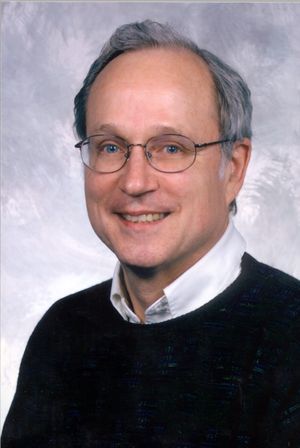Butler W. Lampson
- Birthdate
- 1943/12/23
- Birthplace
- Washington, DC, USA
- Awards
- IEEE Computer Pioneer Award, National Computer Systems Security Award, Turing Award
Biography
Combining a deep understanding of computer-science theory with practical implementation, Butler Lampson has contributed to a remarkable range of systems that make computing as we know it today possible.
As a member of the legendary Computer Science Laboratory of the Xerox Palo Alto Research Center, Dr. Lampson’s work laid much of the foundation for today’s local area networks, client-server systems, laser printers, and editors such as Microsoft Word. He was instrumental to the group’s many breakthroughs, including the Xerox Alto and its successor, the Dorado, which proved that an IBM 370-168 class computer could be packaged to fit in an office. He helped design Interpress, a precursor to Adobe’s Postscript language. He also has been a major contributor to the design and implementation of Mesa, Cedar, and Modula 2+ computer programming languages. This series of designs has influenced the structure of the Java programming language.
One of the designers of the SDS 940 timesharing system, Dr. Lampson was a pioneer in creating a commercial timesharing system that allowed user programming in machine language. Also a leader in computer security, he collaborated in the design of a global naming and authentication service that guided the structure for the OSF/DCE naming and authentication facilities.
Butler Lampson was born on 23 December 1943, in Washington, DC. He obtained an AB in Physics from Harvard University in 1964, and a Ph.D. in Electrical Engineering and Computer Science from the University of California at Berkeley in 1967. Currently, he is a Distinguished Engineer at Microsoft and an Adjunct Professor at MIT.
Dr. Lampson holds 24 patents on networks, security, raster printing, and transaction processing, and has published 64 papers. He is a member of the National Academy of Engineering and a Fellow of the Association for Computing Machinery (ACM) and the American Academy of Arts and Sciences. He holds honorary ScD’s from the Eidgenössische Technische Hochschule, Zürich, and the University of Bologna. He received the ACM’s Software Systems Award in 1984 for his work on the Alto, the IEEE Computer Pioneer Award in 1996, the National Computer Systems Security Award in 1998, and the Turing Award in 1992.
Further Reading
MIT professor ‘made much of our world possible’, Hardesty, Larry, MIT News, February 18th, 2014
